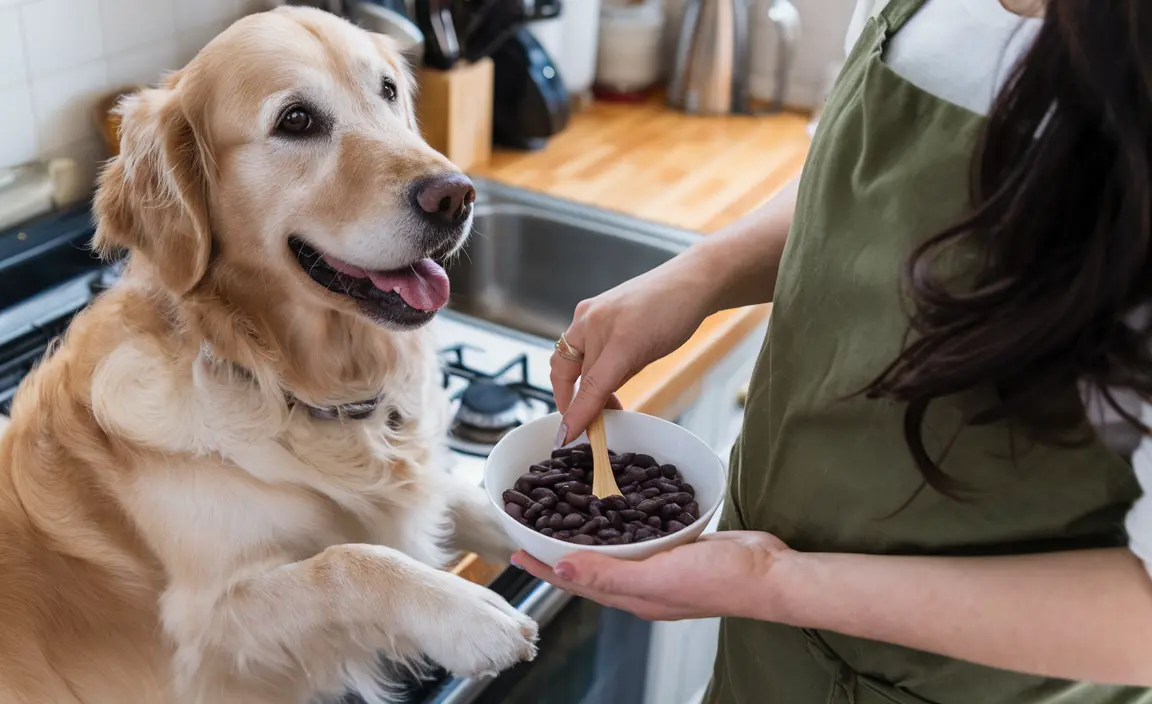As a dog owner, you're always looking for nutritious and safe food options to supplement your furry friend's diet. Black beans might have caught your attention as a potential healthy treat, but understanding their benefits and risks is crucial for your dog's well-being. This guide will walk you through everything you need to know about feeding black beans to dogs, ensuring you make informed nutritional choices.
Many pet owners are curious about incorporating human foods into their dog's diet, and black beans can be a nutritious option when prepared and served correctly. Let's dive into the details of how these legumes can fit into your dog's meal plan.
Nutritional Benefits of Black Beans for Canine Diets
Black beans are packed with essential nutrients that can provide several health advantages for dogs when introduced appropriately. These legumes offer a range of nutritional benefits that can complement a balanced canine diet:
Protein and Amino Acids
Black beans are an excellent source of plant-based protein, providing essential amino acids that support muscle development and overall health. While dogs primarily require animal protein, the additional protein from black beans can be a valuable supplement to their diet.
Fiber and Digestive Health
The high fiber content in black beans can support your dog's digestive system. Fiber helps regulate bowel movements, promotes healthy gut bacteria, and can assist in maintaining a healthy weight. However, it's important to introduce fiber gradually to prevent digestive upset.
Antioxidant Support
Rich in antioxidants, black beans can help boost your dog's immune system and potentially reduce the risk of chronic diseases. These powerful compounds fight free radicals and support overall cellular health, contributing to your pet's long-term well-being.
How to Safely Prepare Black Beans for Dogs
Proper preparation is key to ensuring black beans are safe and digestible for your canine companion. Follow these essential guidelines to minimize risks:
Cooking Methods
Never serve raw black beans to your dog. Always thoroughly cook beans by boiling, pressure-cooking, or soaking to eliminate toxins and improve digestibility. Raw beans contain lectins that can be harmful to dogs and cause significant digestive issues.
Seasoning and Additives
Serve black beans plain, without any salt, spices, oils, garlic, or onion. These additional ingredients can be toxic or cause digestive problems for dogs. Plain, unseasoned cooked beans are the safest option.
Potential Risks and Precautions
Moderation is Key
While black beans offer nutritional benefits, they should never replace your dog's primary diet. Treat them as an occasional supplement, not a staple food. Overfeeding can lead to digestive issues like gas, bloating, or diarrhea.
Individual Dog Considerations
Some dogs may have more sensitive digestive systems or specific health conditions that make black beans unsuitable. Dogs with kidney issues or those on special diets should consult a veterinarian before introducing black beans.
Serving Recommendations
Portion Control
Start with small amounts mixed into your dog's regular food. A good rule of thumb is to ensure black beans make up no more than 10% of your dog's total daily food intake. Watch for any adverse reactions and adjust accordingly.
Hydration
Always ensure your dog has access to fresh water when introducing black beans to their diet. The high fiber content can increase water requirements and help prevent potential digestive discomfort.
Frequently Asked Questions
Can Dogs Eat Black Beans Safely?
Yes, dogs can eat black beans safely when properly cooked and served in moderation.
How Should I Prepare Black Beans for My Dog?
Cook beans thoroughly, serve plain without seasonings, and introduce gradually in small amounts.
What Are the Nutritional Benefits of Feeding Black Beans to Dogs?
Black beans provide protein, fiber, antioxidants, and essential vitamins that support overall health.
What Are the Risks of Feeding Black Beans to Dogs?
Potential risks include digestive upset, excessive fiber intake, and difficulty digesting plant-based proteins.
Can I Use Black Beans as a Regular Part of My Dog's Diet?
No, black beans should be an occasional treat, not a primary food source. Always consult your veterinarian about dietary changes.






